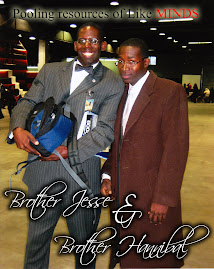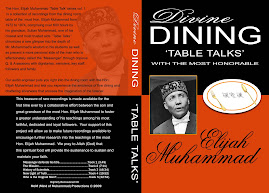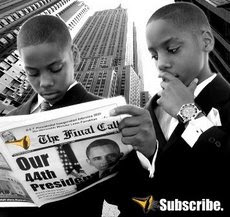Friday, October 2, 2009
EXCLUSIVE: Obama agrees to keep Israel's nukes secret
President Obama has reaffirmed a 4-decade-old secret understanding that has allowed Israel to keep a nuclear arsenal without opening it to international inspections, three officials familiar with the understanding said.
The officials, who spoke on the condition that they not be named because they were discussing private conversations, said Mr. Obama pledged to maintain the agreement when he first hosted Israeli Prime Minister Benjamin Netanyahu at the White House in May.
Under the understanding, the U.S. has not pressured Israel to disclose its nuclear weapons or to sign the nuclear Non-Proliferation Treaty (NPT), which could require Israel to give up its estimated several hundred nuclear bombs.
Israel had been nervous that Mr. Obama would not continue the 1969 understanding because of his strong support for nonproliferation and priority on preventing Iran from developing nuclear weapons. The U.S. and five other world powers made progress during talks with Iran in Geneva on Thursday as Iran agreed in principle to transfer some potential bomb fuel out of the country and to open a recently disclosed facility to international inspection.
Mr. Netanyahu let the news of the continued U.S.-Israeli accord slip last week in a remark that attracted little notice. He was asked by Israel's Channel 2 whether he was worried that Mr. Obama's speech at the U.N. General Assembly, calling for a world without nuclear weapons, would apply to Israel.
"It was utterly clear from the context of the speech that he was speaking about North Korea and Iran," the Israeli leader said. "But I want to remind you that in my first meeting with President Obama in Washington I received from him, and I asked to receive from him, an itemized list of the strategic understandings that have existed for many years between Israel and the United States on that issue. It was not for naught that I requested, and it was not for naught that I received [that document]."
The chief nuclear understanding was reached at a summit between President Nixon and Israeli Prime Minister Golda Meir that began on Sept. 25, 1969. Avner Cohen, author of "Israel and the Bomb" and the leading authority outside the Israeli government on the history of Israel's nuclear program, said the accord amounts to "the United States passively accepting Israel's nuclear weapons status as long as Israel does not unveil publicly its capability or test a weapon."
There is no formal record of the agreement nor have Israeli nor American governments ever publicly acknowledged it. In 2007, however, the Nixon library declassified a July 19, 1969, memo from national security adviser Henry Kissinger that comes closest to articulating U.S. policy on the issue. That memo says, "While we might ideally like to halt actual Israeli possession, what we really want at a minimum may be just to keep Israeli possession from becoming an established international fact."
Mr. Cohen has said the resulting policy was the equivalent of "don't ask, don't tell."
The Netanyahu government sought to reaffirm the understanding in part out of concern that Iran would seek Israeli disclosures of its nuclear program in negotiations with the United States and other world powers. Iran has frequently accused the U.S. of having a double standard by not objecting to Israel's arsenal.
Mr. Cohen said the reaffirmation and the fact that Mr. Netanyahu sought and received a written record of the deal suggest that "it appears not only that there was no joint understanding of what had been agreed in September 1969 but it is also apparent that even the notes of the two leaders may no longer exist. It means that Netanyahu wanted to have something in writing that implies that understanding. It also affirms the view that the United States is in fact a partner in Israel's policy of nuclear opacity."
Jonathan Peled, a spokesman for the Israeli Embassy in Washington, declined to comment, as did the White House National Security Council.
The secret understanding could undermine the Obama administration's goal of a world without nuclear weapons. In particular, it could impinge on U.S. efforts to bring into force the Comprehensive Test Ban Treaty and the Fissile Material Cutoff Treaty, two agreements that U.S. administrations have argued should apply to Israel in the past. They would ban nuclear tests and the production of material for weapons.
A Senate staffer familiar with the May reaffirmation, who asked not to be named because of the sensitivity of the issue, said, "What this means is that the president gave commitments that politically he had no choice but to give regarding Israel's nuclear program. However, it calls into question virtually every part of the president's nonproliferation agenda.The president gave Israel an NPT treaty get out of jail free card."
Daryl Kimball, executive director of the Arms Control Association, said the step was less injurious to U.S. policy.
"I think it is par for the course that the two incoming leaders of the United States and Israel would want to clarify previous understandings between their governments on this issue," he said.
However Mr. Kimball added, "I would respectfully disagree with Mr. Netanyahu. President Obama's speech and U.N. Security Council Resolution 1887 apply to all countries irrespective of secret understandings between the U.S. and Israel. A world without nuclear weapons is consistent with Israel's stated goal of achieving a Middle East free of weapons of mass destruction. Obama's message is that the same nonproliferation and disarmament responsibilities should apply to all states and not just a few."
Israeli nuclear doctrine is known as "the long corridor." Under it, Israel would begin to consider nuclear disarmament only after all countries officially at war with it signed peace treaties and all neighboring countries relinquished not only nuclear programs but also chemical and biological arsenals. Israel sees nuclear weapons as an existential guarantee in a hostile environment.
David Albright, president of the Institute for Science and International Security, said he hoped the Obama administration did not concede too much to Israel.
"One hopes that the price for such concessions is Israeli agreement to the Comprehensive Test Ban Treaty and the Fissile Material Cutoff Treaty and an acceptance of the long-term goal of a Middle East weapons-of-mass-destruction-free zone," he said. "Otherwise, the Obama administration paid too much, given its focus on a world free of nuclear weapons."
Information Researched By: Sister Anonymous










































